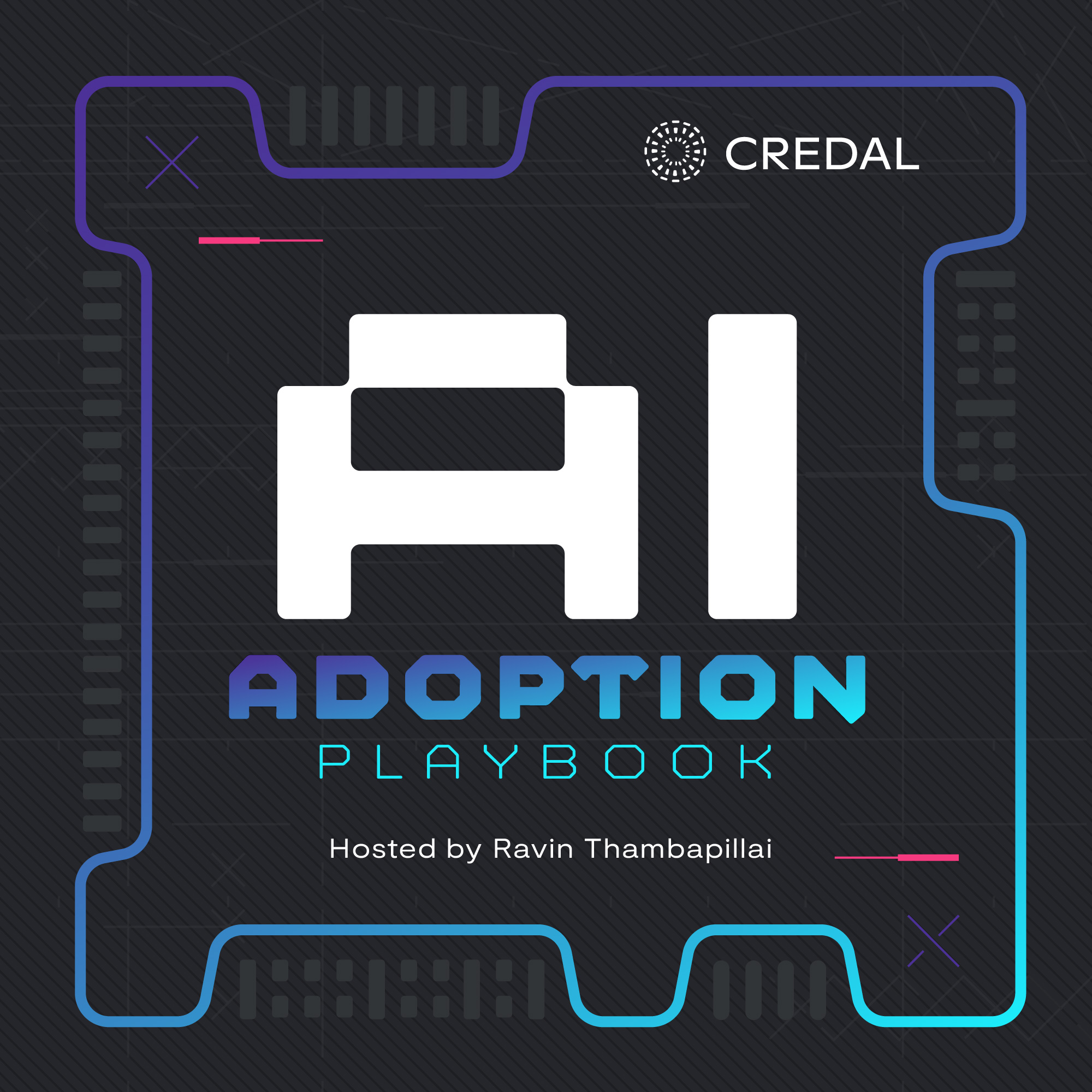AI Adoption Playbook

AI Adoption Playbook
Podcast Description
Welcome to The AI Adoption Playbook—where we explore real-world AI implementations at leading enterprises. Join host Ravin Thambapillai, CEO of Credal.ai, as he unpacks the technical challenges, architectural decisions, and deployment strategies shaping successful AI adoption. Each episode dives deep into concrete use cases with the engineers and ML platform teams making enterprise AI work at scale. Whether you’re building internal AI tools or leading GenAI initiatives, you’ll find actionable insights for moving from proof-of-concept to production.
Podcast Insights
Content Themes
The podcast emphasizes themes of AI implementation in enterprises, sharing specific case studies and frameworks such as WSI's top-down and bottom-up approach to AI adoption, Ramp's model-agnostic systems for financial data processing, and Checkr's innovative use cases that transform background checks. Episodes focus on actionable strategies, ROI calculations, governance frameworks, and quick-win methodologies like 90-minute process improvements, making complex AI topics accessible for business leaders.

Welcome to The AI Adoption Playbook—where we explore real-world AI implementations at leading enterprises. Join host Ravin Thambapillai, CEO of Credal.ai, as he unpacks the technical challenges, architectural decisions, and deployment strategies shaping successful AI adoption. Each episode dives deep into concrete use cases with the engineers and ML platform teams making enterprise AI work at scale. Whether you’re building internal AI tools or leading GenAI initiatives, you’ll find actionable insights for moving from proof-of-concept to production.
David Gildea has learned that traditional security models collapse when AI agents start delegating tasks to 50 or 60 other agents in enterprise workflows. As VP of Product for AI at Druva, he’s building deterministic security harnesses that solve the authentication nightmare of multi-agent systems while maintaining the autonomous capabilities that make AI valuable.
David explains why MCP specifications gained faster enterprise adoption than A2A despite having weaker security features, telling Ravin how his team is addressing authentication gaps through integration with existing identity management systems like Okta. He shares Druva’s approach to wrapping AI agents in security frameworks that require human approval for high-risk actions while learning from user behavior to reduce approval friction over time.
He also covers Druva’s evolution from custom RAG systems to AWS Bedrock Knowledge Bases, demonstrating how to build knowing that components will be replaced by better solutions.
Topics discussed:
- Multi-agent workflow security challenges with 50+ agent delegation chains
- MCP specification adoption advantages over A2A for enterprise authentication
- Deterministic security harnesses wrapping non-deterministic AI agent behaviors
- Identity management complexity when agents impersonate human users in enterprise systems
- Human-in-the-loop scaling problems and supervisor agent solutions for authorization
- AI-first capability layers replacing traditional API structures for agent interactions
- Hyper-personalization learning from individual user behavior patterns over time
- Objective-based chat interfaces eliminating traditional software navigation complexity
- Building replaceable AI components while maintaining development velocity and learning
Listen to more episodes:

Disclaimer
This podcast’s information is provided for general reference and was obtained from publicly accessible sources. The Podcast Collaborative neither produces nor verifies the content, accuracy, or suitability of this podcast. Views and opinions belong solely to the podcast creators and guests.
For a complete disclaimer, please see our Full Disclaimer on the archive page. The Podcast Collaborative bears no responsibility for the podcast’s themes, language, or overall content. Listener discretion is advised. Read our Terms of Use and Privacy Policy for more details.